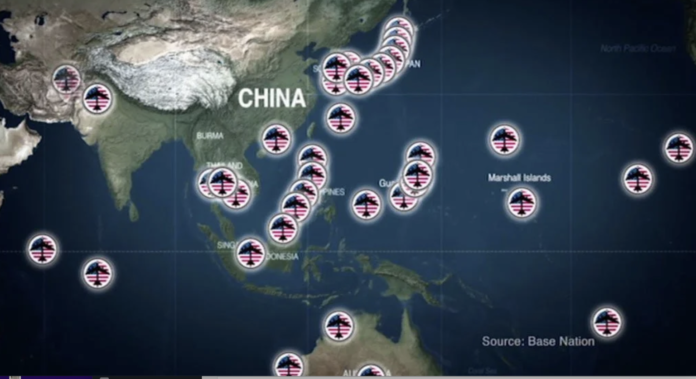Security impact of Australia’s ‘No’ vote
Last weekend, Australia voted against ‘The Voice.’ A proposal for constitutional reform that sought to give indigenous Australian’s more opportunity to be heard by policy makers. This decision may impact on Australia’s diplomatic relationships.
The proposal was that federal governments are required to appoint a panel of indigenous representatives able to comment on, and provide an indigenous perspective in policy decisions. The proposed panel had no legal power, its proposed role being to provide an indigenous point of view within Australia’s federal government.
The debate is important from a security perspective because it has implications for Australia’s image amongst its Pacific neighbours. Most Polynesian, Melanesian and Micronesian politicians are indigenous people likely to be sympathetic to the aspirations of Australia’s indigenous community.
Modern Australia is a diverse nation that developed from English colonies, some of which brutally mistreated indigenous people. So, it is likely that some Pacific politicians could interpret the ‘No’ vote as a throwback to this era and that modern Australia does not value its first nation cultures.
Diplomatically, the impact is that the ‘No’ vote may reduce Pacific people’s perception that Australians value them as equals and possibly their confidence in Australia as an ally or partner. A situation that a threat group with an anti-Australian agenda could leverage for political or diplomatic gains.
In an age of hybrid war in which information war is as important as kinetic action, the way a nation is perceived is important because potential allies or supporters must have trust and confidence. Likewise, contested communities will make ‘values’ judgements about the nations wanting their support. In the battle for the Pacific, the ‘No’ vote provides Australia’s opposition with an exploitable narrative that could be used to argue Australians do not value indigenous cultures, potentially undermining Australia’s relationships with Pacific nations.
Congress report says United States should prepare for the possibility of simultaneous war with China and Russia
A recent report to the United States Congress paints a grim picture of the current security environment. Stating that the United States needs to be prepared for the possibility of fighting China and Russia simultaneously.
Congress’s Commission on United States Strategic Posture recently reviewed America’s strategic environment and published its report last week. The last time this commission formed and reported was in 2009. Representatives Madelyn Creedon, Chair of the Commission and Vice Chair Jon Kyl warning in the introduction that the United States needs to plan for the possibility of simultaneous war with China and Russia, stating that “Being unprepared for the reality of two nuclear peers, who are dedicated to and focused on undermining the post-Cold War international order that has served the United States and its Allies and partners so well, is, in our view, not an option.” Generally, the report’s findings are that the United States needs to increase military spending and modernisation of equipment to ensure that America retains leadership in both conventional and nuclear capabilities.
The report is very detailed, starting with a 2027-2035 threat assessment highlighting China’s increasing military power. Specifically, the increasing range and survivability of China’s nuclear force. This means that the United States now faces two nuclear capable adversaries. An issue that changes the dynamics of deterrence. The report notes China’s development and increasing deployment of low yield nuclear weapons, a dangerous trend. Small very accurate nuclear weapons provide a new, intermediate step in nuclear escalation that could make their use more likely.
The increasing size and expeditionary capability of China’s conventional forces is also highlighted including the increasing capability of Chinese precision-guided weapons. Additionally, the cyber threats posed by China and Russia are highlighted, the report stating for instance that “Russia views cyber disruptions as a foreign policy lever to shape other countries’ decisions” and that “The PRC seeks to create disruptive and destructive effects to shape decision making and disrupt military operations in the initial stages of and throughout a conflict” or that a credible cyber threat to infrastructure like water, power or internet could potentially be as effective a threat as kinetic attack. A new hybrid strategy that small Pacific nations need to understand and work together to counter.
The alliance’s section of the report is of particular interest to the Pacific, an area of intensive Sino-American competition and the document discusses this region in some detail focussing especially on United States allies in the region; Australia, Thailand, Philippines, Japan and South Korea. The report discusses the importance of partnership and collaboration.
In security term’s collaboration’s key enablers are; forward deployment and interoperability. The report discusses forward deployment highlighting the role of United States forces being in location supporting allies and partners stating that “The Commission’s engagement with multiple allied representatives featured a clear and consistent message: U.S. presence and commitment are indispensable. Each conversation highlighted the critical importance of U.S. forward-positioning and extended deterrence on allied security planning.” A section of the report with direct relevance to the Pacific where in recent years United States forces are returning permanently to garrisons and bases in the Philippines, Japan and Australia. It is likely this trend will continue.
A key feature of future forward deployment in the Pacific will be looking for land bases for long-range precision guided weapons. A report recommendation is that “The United States prioritize funding and accelerate long-range non-nuclear precision strike programs to meet the operational need and in greater quantities than currently planned” and in the vast expanses of the Pacific these weapons will become increasingly important. Holding a centrally located island allows a force to dominate an enormous area using this type of weapon. Especially, for the United States that currently controls space so has an advantage using it satellites for surveillance and targeting.
The second factor, interoperability is the ability for the militaries of different nations to work together. The Commission’s report recommends “…the Department of Defense continue increasing interoperability between U.S. and allied systems in order to maximize regional deterrent effects, by balancing the need for classification and export controls with the critical need to increase technological cooperation and combined capabilities.” In the Pacific this recommendation means a greater emphasis on militaries that want to work with the United States meeting standards of training and equipment that will require increased defence expenditure.
It also encourages forward deployment of United States military force because by co-locating militaries can more easily plan and train together developing standard procedures and tactics.
However, there is another layer to interoperability that can be overlooked, integration between ally’s military industrial complexes. In the Pacific, the AUKUS submarine deal is a good example. British, American and Australian companies will work together to deliver a new military capability sharing lessons and developing shared processes. Additionally, all three nation’s economies will benefit from the deal including improving the economic sustainability of the defence industry in the two smaller partners; the United Kingdom and Australia.
Finally, the Commission’s focus is deterrence rather than aggression and war in the Pacific should not be seen as a forgone conclusion. The report saying that “Although the potential for a return to a more cooperative relationship with Russia and China now seems remote, we cannot rule out the possibility of change in the 2027-2035 timeframe.”
The report provides plenty of ‘food for thought’ and it can be found on this link – https://www.ida.org/-/media/feature/publications/A/Am/Americas%20Strategic%20Posture/Strategic-Posture-Commission-Report.pdf
Melanesian update
A regular update on the Pacific’s least reported trouble spot; Melanesia.
Papua New Guinean Prime Minister visits China
Papua New Guinea’s Prime Minister, James Marape arrived in Beijing on 17 October, to attend the Third Belt and Road Forum for International Development. The visit includes a meeting with Chinese President Xi Jinping.
Visits like this are a normal part of diplomacy and provide opportunities for leaders to discuss issues and concerns. However, in an era of Sino-American competition there is sure to be backroom diplomacy involved, China seeking to strengthen its relationship with Papua New Guinea.
The strategic importance of Melanesia is highlighted by the fact the both Presidents Biden and Xi have met with Prime Minister Marape in recent weeks. The world’s most powerful leaders taking time to speak with the leader of one of the world’s least rich or powerful nations is an important indicator of how important Papua New Guinea’s location is to both.
Bougainville wants changes to mining regulations
Bougainville is lobbying for changes to mining regulation. The island is an autonomous region within Papua New Guinea, a legacy of the war for independence its people fought. Bougainville still hopes to become independent and is trying to negotiate an independence deal with Papua New Guinea. The island is rich in mineral resources and locals want a larger share of revenue from mining on the island. This request is another example of the tension’s that exist between Bougainville and the Papua New Guinean government that controls the island.




